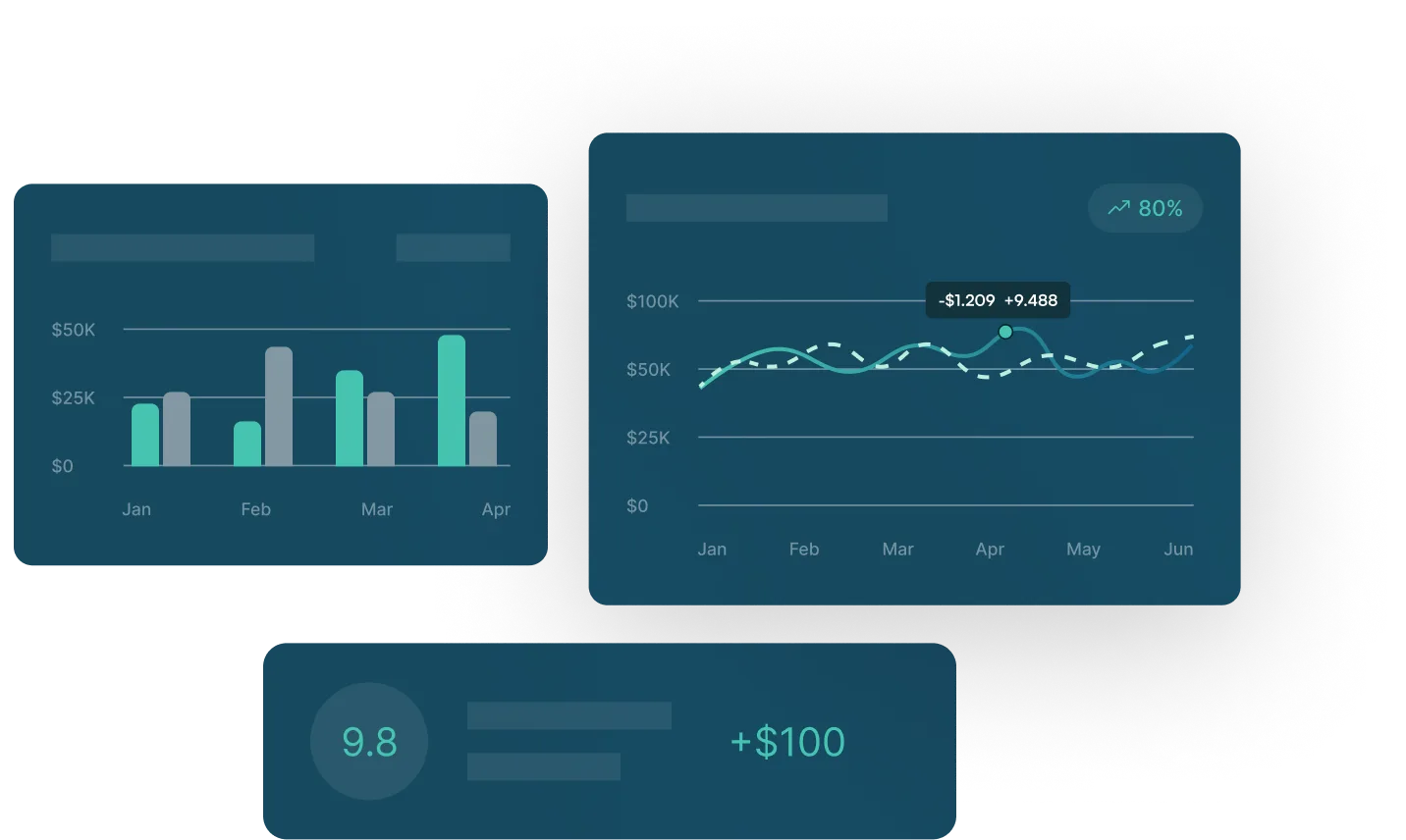Leveraging Cross Currency Net Investment Hedges to Boost Earnings Through Interest Income


Using a Net Investment hedge strategy to boost income has been around for decades, but the ultra-low interest rate environment in Europe combined with the new rules under ASU 2017-12 has renewed curiosity in this approach.
By utilizing a cross-currency swap in a Net Investment hedge strategy, a company can “earn” net interest income on the contract delivering upside straight to the bottom line. This strategy requires an investment in a foreign functional subsidiary. It is important to remember that to take special hedge accounting, a company must meet certain qualifications and substantial documentation requirements.
Net Investment Hedging & The Cross-Currency Approach
A cross-currency swap used as a Net Investment hedge must be either an exchange of foreign fixed-rate payments to domestic fixed-rate payments or foreign floating-rate payments to domestic floating-rate payments. Taking appropriate elections, the net interest accrued on the cross-currency swap impacts earnings while all other changes in value (e.g., spot-to-spot rate changes, basis, discounting, credit) impacts OCI on the balance sheet in equity.
Net Investment Special Hedge Accounting Qualification Requirements
To take advantage of this hedge strategy, you must meet the qualification standards under ASC 815 for Net Investment special hedge accounting:
- The derivative currency pair must be the same as the foreign subsidiary functional currency and reporting currency pair (or a currency highly correlated to the functional currency and the reporting currency).
- The derivative notional cannot exceed the value of the net investment (some caveats for after-tax hedging). The guidance allows the designation of the “beginning balance“ of the net investment.
- Companies matching the currency pairs may use what’s called the critical terms match approach (a perfectly effective relationship assumption), which forgoes the need to perform a quantitative effectiveness test such as a regression.
- ASU 2017-12 allows
- the net interest accrued to be allocated into earnings on a rational basis with all other components of fair value (such as credit or spot-to-spot rate changes) recorded to OCI when the spot to spot method is elected.
- Documentation of the hedge relationship should be completed as soon as the net investment is known, and the proportion is calculated.
- Each quarter, a de-designation and re-designation are performed to designate the hedged proportion of the full net investment.
Caution
While this income-generating hedge strategy works well, there is a very real risk you should be mindful of prior to executing the hedging strategy.
At the end of the cross-currency swap’s life, there is an exchange of cash flows. For example, if the hedged currency was euro, then euro will have to be delivered to its counterparty at a rate that existed at swap execution. If it has not accumulated the necessary currency to deliver euro cash on the contract, the company will have to either buy euro in the spot market or net settle the contract based on that same spot price. In either case, a material “cash” outflow (or inflow) can occur. The gain or loss on the spot settlement will impact equity, but cash will also be directly affected through this settlement mechanism. The amount of cash outflow (or inflow) can be significant.
A safer way to protect the organization from a balloon payment at the end would be to enter into an amortizing swap, which may line up better with the company’s foreign cash inflows, allowing cash collections to be used to reduce the swap notional over time vs. at the end of the contract. Keep in mind that this approach would reduce the income benefit afforded the company as the notional balance of the swap is reduced.
Conclusion
Ultra-low interest rates in Europe have revitalized interest in Net Investment hedge strategies that boost earnings with little or no accounting risk to the organization. By designating a cross-currency swap as a hedge of an investment in a subsidiary, a company can earn net interest income and avoid all other income statement volatility. Changes in fair value of the swap not related to interest are recorded to OCI in equity.
A Net Investment hedge using a fixed for fixed or floating for floating swap may qualify for the critical terms match approach to hedge accounting. This is the simplest form of hedge accounting, frequently allowing the assumption of a perfect hedge relationship.
One caveat to be mindful of is that at the derivative’s maturity, there is usually a requirement to exchange cash flows. If the company has not accumulated enough foreign cash flows to settle the contract, it will have to buy the currency in the spot market, or net settle the contract, either of which may result in a significant impact to USD cash. While the gain or loss can be recorded in equity as part of the hedge relationship, the cash flow impact has the potential to be material to the organization.
Leveraging Cross Currency Net Investment Hedges to Boost Earnings Through Interest Income
Using a Net Investment hedge strategy to boost income has been around for decades, but the ultra-low interest rate environment in Europe combined with the new rules under ASU 2017-12 has renewed curiosity in this approach.
By utilizing a cross-currency swap in a Net Investment hedge strategy, a company can “earn” net interest income on the contract delivering upside straight to the bottom line. This strategy requires an investment in a foreign functional subsidiary. It is important to remember that to take special hedge accounting, a company must meet certain qualifications and substantial documentation requirements.
Net Investment Hedging & The Cross-Currency Approach
A cross-currency swap used as a Net Investment hedge must be either an exchange of foreign fixed-rate payments to domestic fixed-rate payments or foreign floating-rate payments to domestic floating-rate payments. Taking appropriate elections, the net interest accrued on the cross-currency swap impacts earnings while all other changes in value (e.g., spot-to-spot rate changes, basis, discounting, credit) impacts OCI on the balance sheet in equity.
Net Investment Special Hedge Accounting Qualification Requirements
To take advantage of this hedge strategy, you must meet the qualification standards under ASC 815 for Net Investment special hedge accounting:
- The derivative currency pair must be the same as the foreign subsidiary functional currency and reporting currency pair (or a currency highly correlated to the functional currency and the reporting currency).
- The derivative notional cannot exceed the value of the net investment (some caveats for after-tax hedging). The guidance allows the designation of the “beginning balance“ of the net investment.
- Companies matching the currency pairs may use what’s called the critical terms match approach (a perfectly effective relationship assumption), which forgoes the need to perform a quantitative effectiveness test such as a regression.
- ASU 2017-12 allows
- the net interest accrued to be allocated into earnings on a rational basis with all other components of fair value (such as credit or spot-to-spot rate changes) recorded to OCI when the spot to spot method is elected.
- Documentation of the hedge relationship should be completed as soon as the net investment is known, and the proportion is calculated.
- Each quarter, a de-designation and re-designation are performed to designate the hedged proportion of the full net investment.
Caution
While this income-generating hedge strategy works well, there is a very real risk you should be mindful of prior to executing the hedging strategy.
At the end of the cross-currency swap’s life, there is an exchange of cash flows. For example, if the hedged currency was euro, then euro will have to be delivered to its counterparty at a rate that existed at swap execution. If it has not accumulated the necessary currency to deliver euro cash on the contract, the company will have to either buy euro in the spot market or net settle the contract based on that same spot price. In either case, a material “cash” outflow (or inflow) can occur. The gain or loss on the spot settlement will impact equity, but cash will also be directly affected through this settlement mechanism. The amount of cash outflow (or inflow) can be significant.
A safer way to protect the organization from a balloon payment at the end would be to enter into an amortizing swap, which may line up better with the company’s foreign cash inflows, allowing cash collections to be used to reduce the swap notional over time vs. at the end of the contract. Keep in mind that this approach would reduce the income benefit afforded the company as the notional balance of the swap is reduced.
Conclusion
Ultra-low interest rates in Europe have revitalized interest in Net Investment hedge strategies that boost earnings with little or no accounting risk to the organization. By designating a cross-currency swap as a hedge of an investment in a subsidiary, a company can earn net interest income and avoid all other income statement volatility. Changes in fair value of the swap not related to interest are recorded to OCI in equity.
A Net Investment hedge using a fixed for fixed or floating for floating swap may qualify for the critical terms match approach to hedge accounting. This is the simplest form of hedge accounting, frequently allowing the assumption of a perfect hedge relationship.
One caveat to be mindful of is that at the derivative’s maturity, there is usually a requirement to exchange cash flows. If the company has not accumulated enough foreign cash flows to settle the contract, it will have to buy the currency in the spot market, or net settle the contract, either of which may result in a significant impact to USD cash. While the gain or loss can be recorded in equity as part of the hedge relationship, the cash flow impact has the potential to be material to the organization.

See GTreasury in Action
Get connected with supportive experts, comprehensive solutions, and untapped possibility today.




























.png)





.png)
.png)







.png)












.jpeg)

.jpeg)


.jpeg)






.jpeg)

.jpeg)





.jpeg)


.jpeg)

.jpeg)








.jpeg)

.jpg)





.jpg)

.jpg)





